Prince Albert II of Monaco and Paris mayor Anne Hidalgo team up in a new private sector initiative to make a convincing case against climate sceptics
Temperatures that set new records worldwide, out-of-control wildfires and hurricanes, rising sea levels and ongoing desertification – no one can deny any longer that manmade climate change is here to stay and that things are only getting worse. Following the U.S. withdrawal from the 2015 Paris climate agreement, international cooperation is more critical than ever to avoid the catastrophe we’re headed for. Under the high patronage of HSH Prince Albert II of Monaco, the newly instituted Transition Monaco Forum – an international and holistic initiative – seeks to counteract the detrimental consequences by rallying global support and engagement on government, corporate, and personal level. In the first edition, the Prince and the mayor of Paris, Anne Hidalgo, lent their support as keynote speakers. Former Governor of California Arnold Schwarzenegger, who over the years has become a strong environmental activist, was also invited but could not appear due to health reasons.
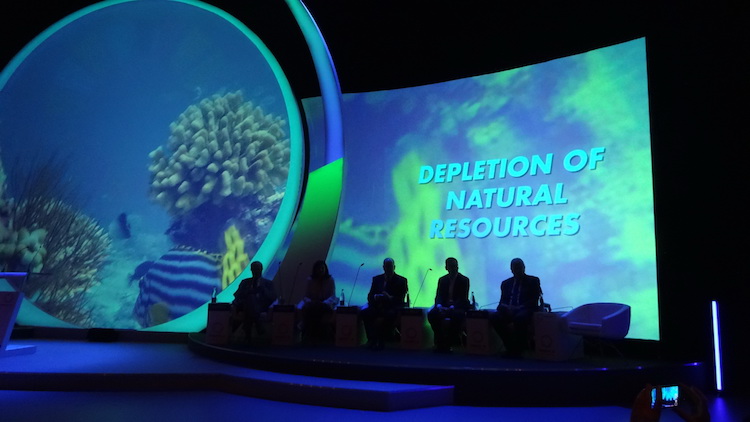
Positioning itself as a new global platform dedicated to accompanying and accelerating the ecological and energy transition across all sectors and industries, Transition Monaco Forum is a private sector initiative that aims to act as a catalyst for change by responding to the ambitious objectives set by the UN Sustainable Development Goals, the Paris Climate Agreement and the One Planet Summit. Under the theme “Reinventing Business Models” the initiative‘s inaugural edition, held at the Grimaldi Forum at the end of June 2018, sought to accelerate the transition to a clean future by mobilizing key multi-stakeholders to find concrete solutions and commit to actionable tasks. As part of its global profile, the Forum highlights one country each year which has shown exceptional dedication to technological and environmentally sustainable progress, and in 2018 this honour went to China.
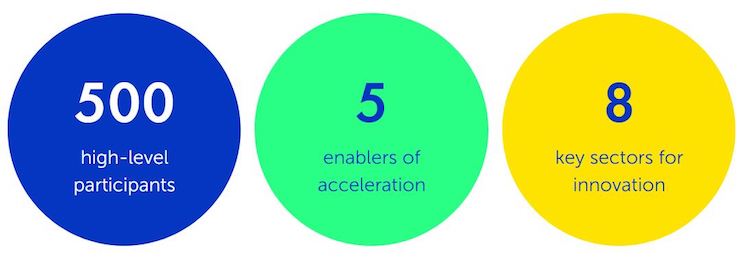
But while garnering support is fine, as both Prince Albert and Mayor Hidalgo said in their opening remarks, the goal was to find and implement concrete solutions. A key priority is financing. An investment of no less than US $93 trillion in infrastructure investment will be required in the next 15 years to meet global infrastructure needs, while ensuring the transition to a low-carbon economy. Small wonder therefore that the first of the two days was almost exclusively committed to defining strategies around that crucial issue.
From traditional banking to crowd-funding, from policy makers of frameworks and regulations to Luxemburg’s Green Stock Exchange, a number of globally renowned financial experts weighed in. Investors and top experts alike agreed that investing in the green economy yields good ROI. Alzbeta Klein, Director and Global Head of Climate Business for IFC, the third largest issuer of green bonds in the world, said: “Green is profitable. Every year, the world invests $300 billion in renewable energies, because there are proven returns.” And Pedro Antonio Arias, Global Head of Real and Alternative Assets at Amundi Asset Management, confirmed that “companies with a lower carbon footprint are generating better returns and that is the most interesting for our investors.”
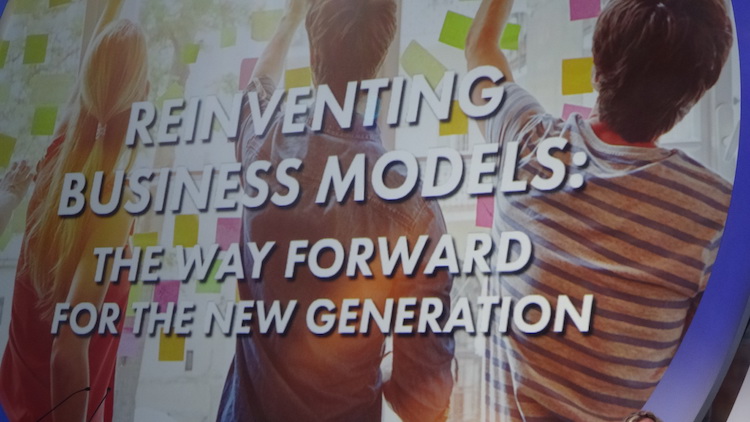
Since environmental issues so pressingly concern today’s young generation, educating future generations is critical. 3.8 billion people (= 50%) of the world’s current population are below the age of 35. Representatives of this demographic was therefore given a prominent voice, represented by four international students of EURECOM, the leading French-international Grande École d’Ingénieurs in nearby Sophia Antipolis. In a panel debate, emcee-journalist Cyrielle Hariel explored the views of Alberto Ibarrondo (Master student, Spain), Theoni Magounaki (PhD student, Greece), Luxman Sellappah (Master student, Sri Lanka), and Xiaoguang Zhao (PhD student, China). It quickly became clear to what extent these 20-somethings and their peers are not only keenly aware of the environmental challenges they face individually and as a society but also proactively combat them in their daily lives, often with the help of technology.
https://youtu.be/qQ3HeiHLSqE
If financing was the key aspect of the first day, innovative technological solutions across industries as varied as fishery, telecom, or smart cities circled straight back to it on Day Two. The Forum highlighted a number of innovative and sustainable initiatives, from massive interurban projects to small start-ups … connected European metropolises next to African solar kiosks, plastic-waste and hydrogen-powered vessels, disruptive agricultural land- and water-based technologies, “green” telecom engineering solutions, and circular economy projects.
A variety of different formats, such as panel discussions or pitch-hubs featuring eminent personalities including Bernard Fautrier, Vice President of the Prince Albert II of Monaco Foundation, professor Graciela Chichilnisky, lead author on the 2007 Intergovernmental Panel on Climate Change that won the 2007 Nobel Prize, Thomas Chalumeau, Executive Director Strategy and Business of telecom giant Orange, and EURECOM professor and researcher Raphaël Troncy (pictured below), a pioneer in the Smart City/Data Moove sphere provided a 360° perspective of today’s (and tomorrow’s) possibilities.
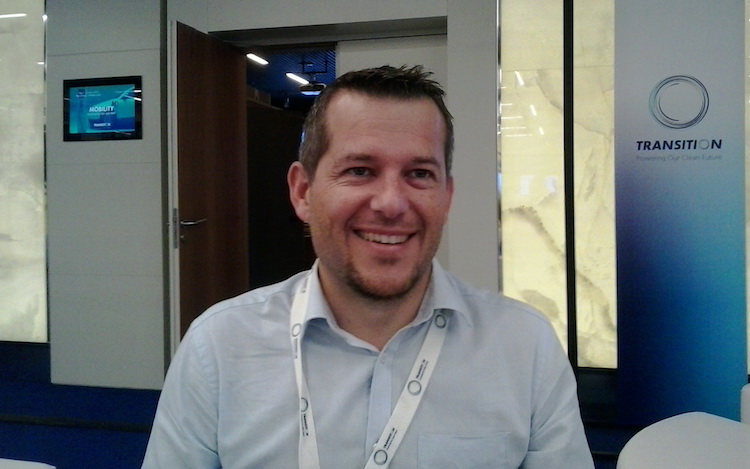
The Principality’s sovereign, Prince Albert II of Monaco, has long been known as a staunch defender of environmental causes, terrestrial, climatic, or maritime. What his country lacks in geographical size he more than makes up in vocal and hands-on presence on the international stage. No venue is too big or too small for his tireless advocacy, and he has found a worthy fellow campaigner in Parisian mayor Anne Hidalgo.
With 75% of humanity predicted to live in cities by 2050, cities and territories have a crucial role to play in the clean economy and are taking local level action without waiting for national initiatives. As a figure head of the C40 initiative, Anne Hidalgo has been a driver in uniting local governments willing to support and copy her ambitious plans to achieve carbon neutrality by 2050, and to define the transition towards a more environmentally and climate-friendly world. Paris will be hosting the 2024 Summer Olympics, sandwiched between Tokyo (2020) and Los Angeles (2028). It was therefore a logical step for the mayor and the Prince to partner with the International Olympic Committee (IOC) and C40 Cities on climate transition by working for sustainable Olympic Games, and this landmark contract was signed at this forum.
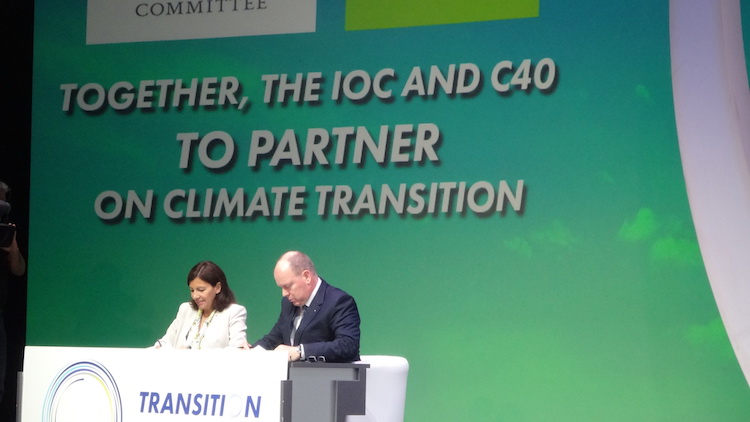
You can watch the mayor’s Transition Monaco Forum speech as well as other keynotes and interviews, including that of Prince Albert II, on the Transition Monaco Forum website.
This exceptionally well-managed and impactful first edition of Transition Monaco Forum – spearheaded by Lionel le Maux, President of Aqua Asset Management, and organized by Richard Attias & Associates – has rightfully garnered a lot of attention, and the June 2019 edition should once and for all cement its reputation as a premier voice in the fight to protect climate, environment, and the planet’s species, collectively fought by governments and the private sector, industries, technologies, academic institutions, and – hopefully – each and every single one of us; wherever we are.
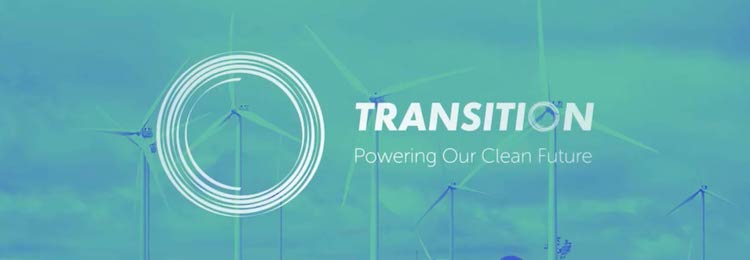
![]()
All photos © Natja Igney; logos and graphics courtesy Transition Monaco Forum


Leave a Reply